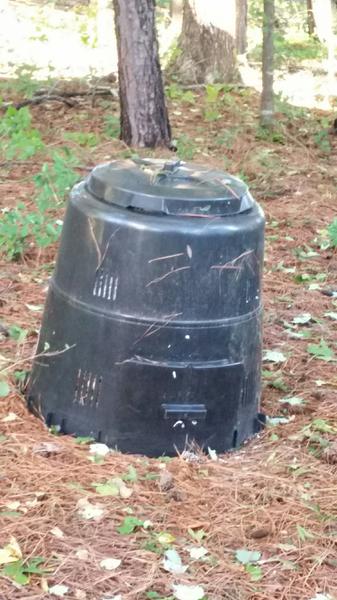What CAN Be Composted in a Home Composting Bin?
- Autumn leaves, twigs, yard trimmings
- Grass clippings
- Vegetables and their trimmings
- Fruit and their peels
- Coffee grounds and filters
- Tea leaves and bags
- Paper napkins
- Cereal boxes
- Sawdust from deciduous hardwood trees
- Bamboo skewers
- Paper egg cartons
- Pizza boxes
- Twigs
- Paper bags
- Houseplant leaves
- Paper rolls (towel, toilet paper, wrapping paper)
- Cotton balls and swabs
- Paper plates
- Straw and hay (no persistent herbicides: https://content.ces.ncsu.edu/herbicide-carryover)
- Nut shells (no walnut shells—they can be toxic to plants)
- Stale herbs and spices
- Wine corks
- Toothpicks
- Paper baking cups
- Hair and fur
- Dryer lint
- Vacuum contents & floor sweepings
- Pencil shavings
- Newspaper
- Loofahs
- Cotton, wool, linen, silk, hemp, burlap, felt
- Office paper, junk mail, envelopes (no plastic)
- Used matches
- Yard trimmings
- Nail clippings
- Freezer-burned vegetables and fruits
- Aquarium water, algae, plants
- Soiled paper
- Dregs from juice, beer, wine
- Spent potting soil
- Dead blossoms
- Eggshells and crustacean shells
- Paper table cloths
- Spoiled tomato sauce, paste
- Dead flowers, blossoms
- Potpourri
- Beer and wine-making leftovers
- Seaweed
- Evergreen garlands and wreaths
- Jack O'lanterns
- Dry dog, cat, fish food
- Bread, tortillas, pitas
- Cereal and crackers
- Chips (tortilla, potato, etc)
- Cooked pasta, rice, other grains
- Soy, rice, almond, coconut milk
- Crepe paper streamers
- Yarn, thread, string, rope, twine
- Cork
- Wood chips and bark
- Dryer sheets manufactured by Seventh Generation or Method
What NOT to Compost at Home
- Meat, bones, fish (produce odors and attract animals)
- Milk products, such as butter, milk, yogurt, sour cream (produce odors and attract animals)
- Eggs, grease, oils, lard (produce odors and attract animals)
- Pet and human feces, dirty diapers, tampons, personal care products (may contain pathogens harmful to humans and plants)
- Plant material treated w/ herbicides/pesticides
- Pressure-treated lumber (has toxic chemicals)
- Lime (can cause ammonia gas releases)
- Diseased plants and leaves (could cause disease to spread when compost is applied)
- Persistent weeds (bermuda grass, alligator weed, dock weed, kudzu, ivy, dandelions)
- Black walnut tree leaves or twigs (contains juglone, a natural aromatic compound toxic to some plants)
- Heavily coated paper such as magazines, catalogs, wrapping paper, greeting cards with metallic inks
- Dryer sheets made of polyester covered in chemicals
- Pine needles (high in acid and resin; hard to compost)
- Wood ash (too alkaline; can slow composting process and release ammonia)
- Charcoal ash or coal (may contain substances harmful to plants)
- Used facial or toilet tissue (may contain pathogens)
Publication date: April 11, 2011
N.C. Cooperative Extension prohibits discrimination and harassment regardless of age, color, disability, family and marital status, gender identity, national origin, political beliefs, race, religion, sex (including pregnancy), sexual orientation and veteran status.
This publication printed on: March 01, 2026

